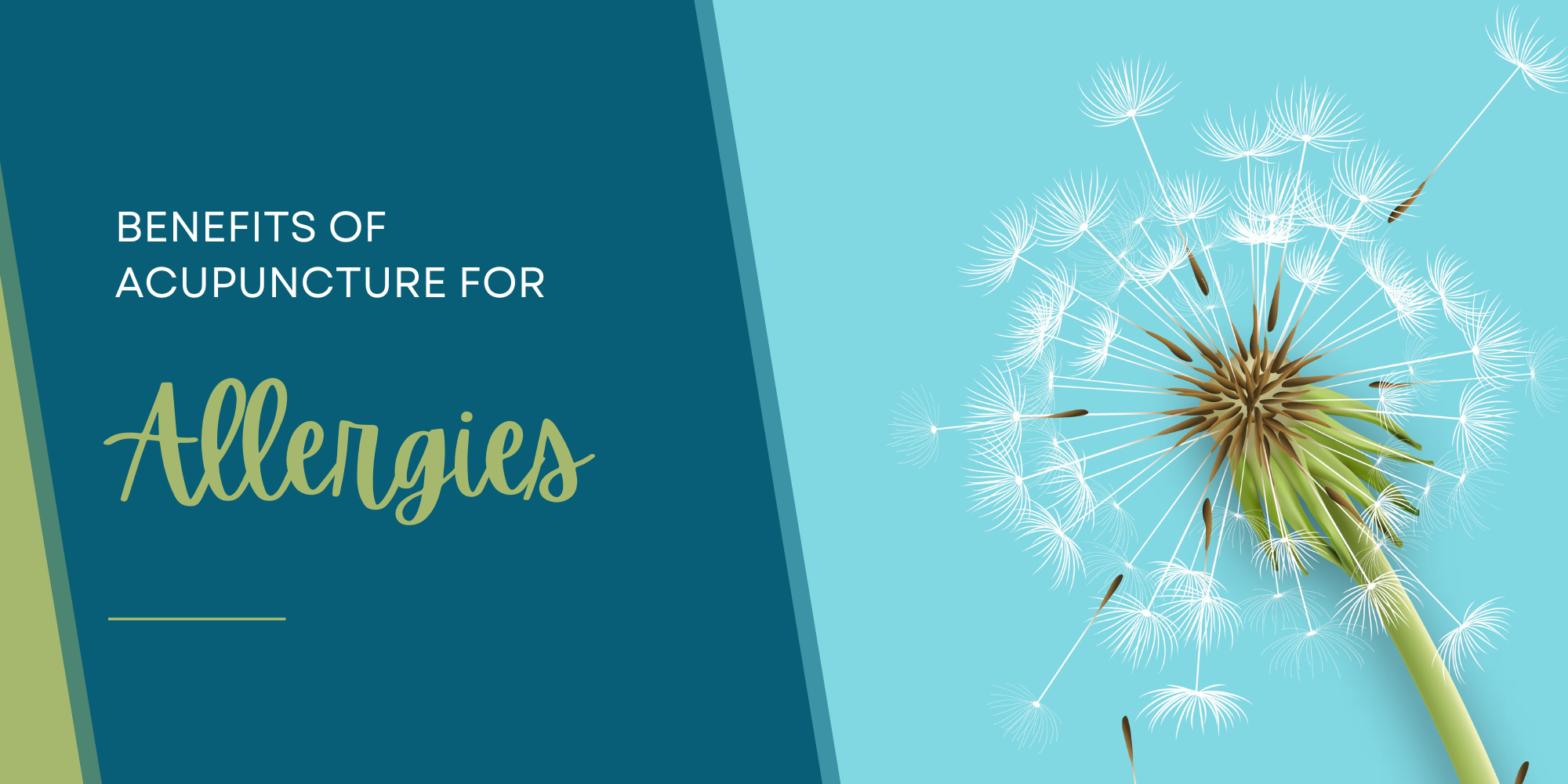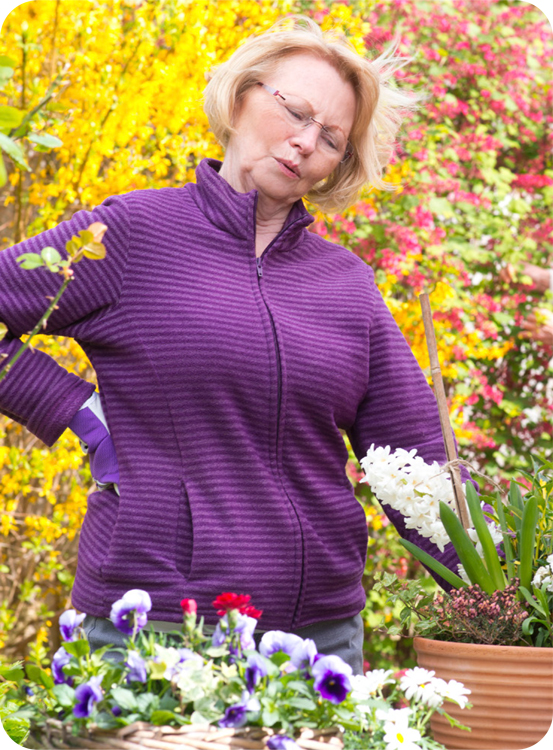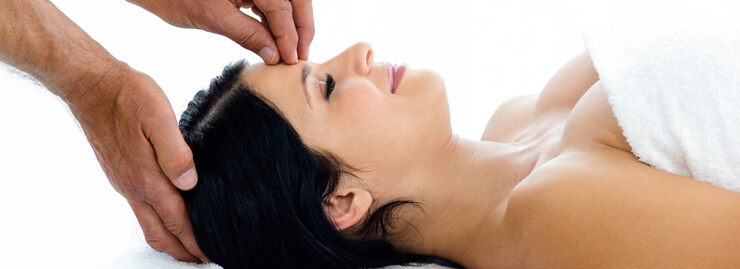
A runny nose, sneezing, itching and watery-eyes…also known as symptoms of allergies. Seasonal allergies can really be a pain. It is estimated that nearly 50 million Americans suffer from seasonal allergies every year. And, the amount of money being spent on over-the-counter allergy medications is over $18 billion.
But, what if there was a way to combat seasonal allergies without the side effects of medications and to actually get to the root of the problem instead of just masking the symptoms? Well, there is a way to do this, and it’s called acupuncture.
Acupuncture and traditional Chinese medicine offer a permanent solution to seasonal allergies with an all-natural approach that will ultimately save you money. Since traditional Chinese medicine (TCM) attacks allergies in a much different method than Western medicine, there is a good chance your allergies will cease to be a problem. Western medicine knows how allergies work and what happens to the body, but there is still no explanation as to why. TCM doesn’t need to know why because TCM looks at the body as a whole and uses an elemental system to determine where there are excesses and deficiencies in each person. So the TCM treatments are completely customized to each patient, thus making them much more effective than over-the-counter medications.
When using TCM to treat allergies, practitioners focus heavily on something called Wei Qi. Wei Qi is similar to the immune system in Western medicine. Wei Qi protects the body against foreign materials that can lead to inflammation and eventually allergies. People with lower immunity/Wei Qi are more susceptible to allergies and frequent colds. Acupuncture helps to boost the Wei Qi making it more difficult for allergens to attack the body.
Acupuncture by itself will make a difference in fighting allergies, but adding herbs and herbal formulas will provide the final punch to help eliminate allergies for good. Because each patient has different causes for their allergies, adding herbal formulas can greatly increase the efficacy of the acupuncture treatments by extending the effect of the needles. For example, if a patient specifically gets itchy, or watery eyes when their allergies flare up, then the practitioner would likely want to draw the excess energy/element down. In this particular case, the patient would have an excess of fire creating wind. The practitioner would use acupuncture points known to decrease fire and wind in the body. Then also adding herbs that do the same thing, would create a one-two punch type of treatment that has longer lasting, more permanent effects.
Ultimately what acupuncture does is boost the Wei Qi/immune system while decreasing the inflammatory response in your body that occurs when an allergen is encountered. The other aspect of treatment, as stated earlier, is to look at the patient as a whole versus just the symptoms. A good acupuncturist will also focus on dietary habits that may be contributing to your allergies. Many times a person’s Wei Qi is depleted from within due to the foods they are eating. Things like sugar and dairy are often associated with a lower immune system. Eliminating or drastically reducing these items will allow the body to recover more quickly, making allergy attacks easier to resolve.
A comprehensive plan including acupuncture treatments, herbs and dietary changes will yield the best results when it comes to fighting allergies. Be sure to call us at (218) 724-3400 to schedule an appointment with Heidi and you will be grateful year after year for the relief they provide when it comes to treating allergies.


 A study done at the Chronic Pain and Fatigue Research Center at the University of Michigan Medical School found that of 20 women who were diagnosed with fibromyalgia, the half that received acupuncture treatment had increased activity of the pain-reducing receptors in the brain.
A study done at the Chronic Pain and Fatigue Research Center at the University of Michigan Medical School found that of 20 women who were diagnosed with fibromyalgia, the half that received acupuncture treatment had increased activity of the pain-reducing receptors in the brain.  Several recent studies on the effects of acupuncture on hypertension indicate that it can have a significant impact on lowering high blood pressure and managing the side effects of medication (Cevik, 2013). Researchers at University of California at Irvine have been studying the neuroendocrine mechanism underlying the significant clinical effect acupuncture has on the treatment of hypertension for the last 15 years. They have discovered that electroacupuncture (EA) at the points P 5-6, Li11-10, St 36-37 and Ht 6-7 lowered hypertension and that low frequency and low current electroacupuncture (EA) produces significant results. Notably when P 5-6 receives only acupuncture without needle manipulation to stimulate ‘deQi’ sensation there was no effect on hypertension. EA is used to deliver consistent stimulation to the underlying nerves which send impulses to the rVLM part of the brain, a part of the medulla which interacts with the cardiovascular system. EA at low frequency at P 5-6, Li 11-10, St 36-37 and Ht 6-7 causes a release of enkephalin neuropeptides, endorphins, and GABA which has a net effect of lowering high blood pressure. In an eight week study with participants receiving EA acupuncture once per week, there was a clinically significant result lowering of BP by 12-18 mmHg and results lasted up to four weeks post treatment. (Zhou, 2011)
Several recent studies on the effects of acupuncture on hypertension indicate that it can have a significant impact on lowering high blood pressure and managing the side effects of medication (Cevik, 2013). Researchers at University of California at Irvine have been studying the neuroendocrine mechanism underlying the significant clinical effect acupuncture has on the treatment of hypertension for the last 15 years. They have discovered that electroacupuncture (EA) at the points P 5-6, Li11-10, St 36-37 and Ht 6-7 lowered hypertension and that low frequency and low current electroacupuncture (EA) produces significant results. Notably when P 5-6 receives only acupuncture without needle manipulation to stimulate ‘deQi’ sensation there was no effect on hypertension. EA is used to deliver consistent stimulation to the underlying nerves which send impulses to the rVLM part of the brain, a part of the medulla which interacts with the cardiovascular system. EA at low frequency at P 5-6, Li 11-10, St 36-37 and Ht 6-7 causes a release of enkephalin neuropeptides, endorphins, and GABA which has a net effect of lowering high blood pressure. In an eight week study with participants receiving EA acupuncture once per week, there was a clinically significant result lowering of BP by 12-18 mmHg and results lasted up to four weeks post treatment. (Zhou, 2011)
 Probably the two most important things you can do for heart health during the summer months is drink plenty of fresh water and eat cooling foods. No matter what season of the year, water is vital and it is recommended we drink at least 64 ounces per day. Cooling foods like fruits are good at keeping fire under control, which is healthy for the whole body.
Probably the two most important things you can do for heart health during the summer months is drink plenty of fresh water and eat cooling foods. No matter what season of the year, water is vital and it is recommended we drink at least 64 ounces per day. Cooling foods like fruits are good at keeping fire under control, which is healthy for the whole body.
 Scalp acupuncture seems to be the most effective method of treating stroke patients. Scalp acupuncture has a couple of different systems, but Zhu’s Scalp Acupuncture is the most commonly used. Zhu’s Scalp Acupuncture prevents or reduces brain swelling or edema, thus halting further damage to brain tissues. It promotes perfusion in the brain, which restores blood and oxygen to the brain cells. It helps break down blood clots and it can accelerate functional recovery.
Scalp acupuncture seems to be the most effective method of treating stroke patients. Scalp acupuncture has a couple of different systems, but Zhu’s Scalp Acupuncture is the most commonly used. Zhu’s Scalp Acupuncture prevents or reduces brain swelling or edema, thus halting further damage to brain tissues. It promotes perfusion in the brain, which restores blood and oxygen to the brain cells. It helps break down blood clots and it can accelerate functional recovery.
